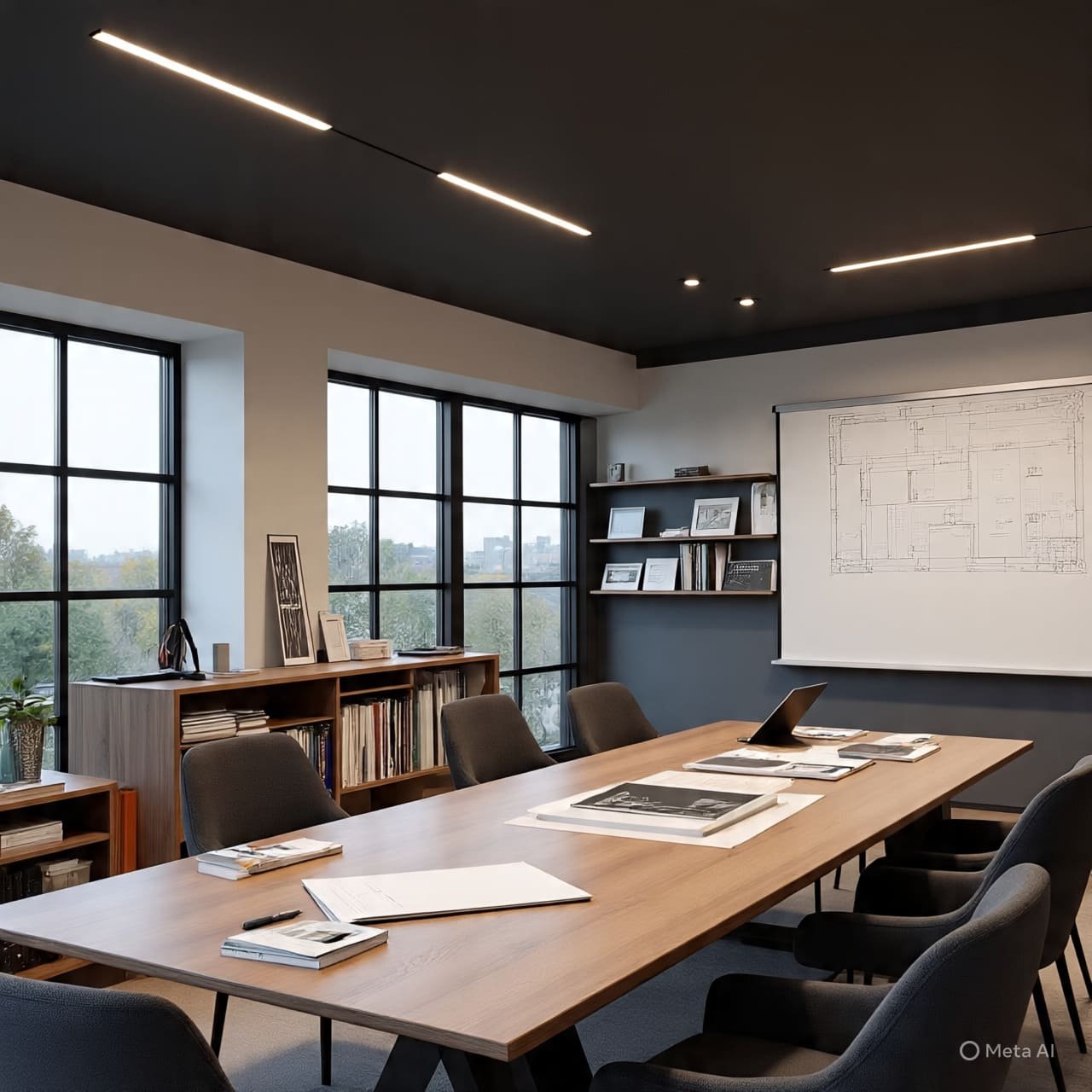Mapping Keyword Intent for Design Studios — More Inquiries, Less Noise
Not All Keywords Bring Projects. Only the Right Intent Does.
Here’s the harsh truth:
If your architecture or design studio is optimizing content just to rank, you’re playing the wrong game.
Traffic doesn’t matter if it doesn’t lead to qualified inquiries. You don’t want thousands of visitors browsing “modern living room ideas.” You want the handful searching “hire architect for hillside villa in Napa.”
For the dangers of chasing volume, see Why Generalist SEO Fails Designers (And What to Do Instead)
That’s the gap keyword intent fills. It separates window shoppers from ready-to-hire clients. When your keyword strategy reflects buyer psychology, your visibility turns into real conversations, inquiries, and eventually—projects.
This blog will show you how to stop guessing and start aligning your SEO with project-fit demand.
Key Takeaways (for the skimmers)
- Keyword intent > keyword volume — ranking without intent is wasted visibility.
- Commercial & transactional keywords drive real inquiries; informational ones rarely do.
- Mapping keywords to services/projects turns your site into a qualified lead engine.
- Search-to-SQL methodology ensures you’re tracking queries that create booked calls, not just clicks.

What Is Keyword Intent (And Why It Matters)?
Keyword intent is the purpose behind a search. It answers the simple but powerful question:
👉 “What is this person really trying to do?”
In architecture and design, not every searcher is looking to start a project. Many are:
- Browsing for inspiration
- Looking for definitions or trends
- Exploring ideas for later
That’s why SEO needs more than rankings — it needs intent mapping.
To make keyword intent work for your studio, you need to think like your buyer:
- What questions do they ask right before contacting a designer?
- Which searches signal urgency or budget-readiness?
- What phrasing shows they’ve moved from curious to committed?
When you understand this shift, you stop chasing empty clicks and start attracting inquiries that fit your pipeline. Not every searcher is looking to start a project. Many are browsing for inspiration. To align SEO with buyer psychology, check Mapping Keyword Intent for Architects – How to Land Luxury Design Projects
The 4 Types of Keyword Intent (And Which Ones Drive Inquiries)
Let’s break this down with real examples.
| Intent Type | Example Keyword | Value for Project Leads | Funnel Stage |
|---|---|---|---|
| Informational | “mid-century modern design ideas” | Low — top of funnel only | TOFU |
| Navigational | “Gensler portfolio” | Medium — brand awareness | MOFU |
| Commercial | “best interior designers in NYC” | High — active evaluation | MOFU |
| Transactional | “hire architect for luxury villa” | Very High — decision-ready | BOFU |
For architecture and design studios, the sweet spot is commercial + transactional intent. That’s where the inquiries come from. See how this fits into The 4 Phases of SEO-to-Lead Conversion for Architects
Why Many Design Firms Rank But Don’t Get Leads
Here’s the trap most firms fall into:
They rank for:
- “2026 architecture trends”
- “kitchen design inspiration”
- “modern farmhouse aesthetic”
Those bring traffic—but not project-fit clients. Why? Because these are curiosity queries, not conversion queries.
The fix?
Shift from ranking for curiosity → to ranking for intent to hire.
Ask yourself:
- Does this keyword align with a decision point in the client’s journey?
- Would someone searching this be ready to reach out today?
- Can my site answer that need and convert them?
If the answer is no, you’re generating traffic, not opportunity. For fixing this, see SEO Timelines for Design Firms: How Long Does SEO Take
How to Identify Buyer Intent Keywords for Architects
Start by studying how high-value clients think when they’re ready to act.
Look for search terms that include:
- Action words: “hire,” “consult,” “work with”
- Location references: “custom home architect Austin”
- Budget cues: “high-end,” “luxury,” “bespoke”
- Project type specifics: “restaurant interior designer,” “sustainable office architect”
Tools to use:
- Google Search Console (see queries → clicks → conversions)
- Ahrefs / SEMrush (intent filters + keyword gaps)
- Ubersuggest (free keyword competition analysis)
Pro tip: reverse-engineer your best clients.
- Ask: “What did you search before finding us?”
- Look at referral paths in GA4 or CRM data.
- Spot patterns in phrasing (clients rarely type jargon—they use plain language).
Example: You say “multi-residential infill project.” They type “modern townhouse architect San Diego.”
That’s the disconnect keyword intent closes.
Step-by-Step: Map Keywords to Your Services
Here’s a simple mapping framework:
| Design Service | Buyer-Intent Keyword Example | Funnel Stage |
|---|---|---|
| Luxury Homes | “hire architect for lakehouse” | BOFU |
| Interior Design | “high-end interior designer NYC” | MOFU/BOFU |
| Hospitality | “boutique hotel design architect” | BOFU |
| Commercial | “sustainable office building architect” | MOFU |
How to apply this:
- Create matching service pages for each cluster.
- Optimize project pages with these keywords + narrative.
- Build supporting blogs that educate and funnel down to service pages.
This transforms your site from a static brochure into a search-aligned, intent-driven sales tool. For implementation, see Structuring Project Pages for Search and Clients
How to Create Intent-Rich Content
Generic blogs don’t close deals. Intent-rich content does three things:
- Matches the exact phrasing clients use when searching.
- Answers pre-decision questions (cost, process, fit).
- Moves them toward a CTA naturally.
Bad example: “Top 10 Kitchen Trends in 2026.”
Great for Pinterest. Terrible for inquiries.
Good example: “How to Hire a Luxury Kitchen Designer in Miami (What to Expect + Costs).”
Targets a buyer-ready keyword, educates, and ends with an inquiry CTA.
Examples of intent-rich content you should create:
- “How to Hire an Architect for a Custom Home in Napa Valley”
- “Top Interior Design Studios for High-End Residential Projects in LA”
- “Our Step-by-Step Process for Designing Vacation Retreats in Aspen”
Every piece should both rank and qualify. For inspiration, see SEO Content Ideas for Architecture and Interior Design Blogs
Want to Know if Your Keywords Attract the Right Clients?
At Adswom, we audit your visibility through the lens of intent, not vanity traffic.
✅ We identify which keywords are worth $$$ (and which are wasting your time).
✅ We map them to your project-fit funnel.
✅ We show you what’s missing between traffic and booked calls.
👉 Book Your Free Search-to-SQL Diagnostic
The Cost of Ignoring Keyword Intent
Here’s what happens if you ignore intent:
- You’ll get high traffic but low inquiries.
- Your pipeline stays cold despite “good rankings.”
- Your team stays busy producing content that doesn’t convert.
- Smaller, smarter competitors eat your lunch by ranking for decision-ready queries.
You’ll also waste money:
- Blogs that only attract browsers
- Backlinks to irrelevant pages
- Time spent optimizing pages that will never convert
Ranking without intent is SEO theater. Ranking with intent is SEO revenue.
How Adswom’s Search-to-SQL System Maps Intent → Inquiries
Generic SEO = traffic.
Adswom SEO = traffic → project-fit inquiries.
Here’s how:
- Identify intent-aligned keywords that match high-value projects.
- Map queries to service pages, blogs, and project case studies.
- Track which keywords led to real inquiries (via CRM tagging + analytics).
- Build signal loops between keyword → visit → inquiry → SQL (sales-qualified lead).
That’s how we make SEO accountable.
Instead of saying, “We ranked #1 for modern design trends.”
You’ll say: “We ranked #1 for ‘modern estate architect Aspen’ and got 6 consults in 60 days.”
We map queries to service pages, blogs, and project case studies. To connect SEO signals to business impact, read Making SEO Metrics Meaningful for Architecture and Design Leadership
Expanding Intent: From Keywords to Conversion Funnels
Keyword intent should shape every stage of your funnel.
| Funnel Stage | Content Type | Example |
|---|---|---|
| TOFU | Blog / Ideas | “7 Architectural Trends in High-End Homes” |
| MOFU | Process / Portfolio | “Our Process for Designing Mountain Homes” |
| BOFU | CTA / Service Page | “Book a Consult: Custom Mountain Home Architect” |
When intent → content → CTA align, conversions happen naturally. For best practices, check The 5 Layers Every Architecture SEO Strategy Must Include
Keyword Intent for Design SEO
1. What if I already rank for lots of keywords?
Check intent. If they’re mostly informational, you need BOFU service pages + intent-driven content. See How to Get Every Service You Offer Found on Google
2. Can I still blog about inspiration and trends?
Yes, but always link to service/project pages. TOFU only matters if it feeds MOFU/BOFU. see Architecture Blogging for Brand & Search Authority
3. How do I know which keywords drive inquiries?
Track keyword → page → inquiry via Search Console, UTM tagging, and CRM integration. see GA4 and CRM Tracking for SEO Leads
4. What’s better: high volume or high intent?
High intent every time. 90 searches that convert beat 9,000 that don’t.
5. How does Adswom help?
We map keywords to pipeline revenue using our Search-to-SQL framework. That means no wasted effort, only qualified visibility.
Visibility Alone Isn’t the Goal — Relevance Is
SEO that doesn’t map to inquiries is wasted effort. The firms that win are the ones who:
- Rank for decision-driven queries, not just inspiration terms.
- Build pages that match buyer psychology at each funnel stage.
- Track which keywords actually produce sales-qualified leads.
Getting found is step one. Getting found by the right clients, who are ready to start, is the real win.
👉 Start Your Free Visibility Diagnostic with Adswom
Want to attract more project-fit inquiries through a smarter keyword strategy?
Writing team:

Les't communicate.
Recent Articles
 The Real Cost of Generic SEO for High-End Architecture and Interior Design Studios
The Real Cost of Generic SEO for High-End Architecture and Interior Design Studios
 Why Generalist SEO Fails Designers — And What to Do Instead
Why Generalist SEO Fails Designers — And What to Do Instead
 What to Look for in an SEO Agency: A Strategic Guide for Architects and Design Firms
What to Look for in an SEO Agency: A Strategic Guide for Architects and Design Firms

